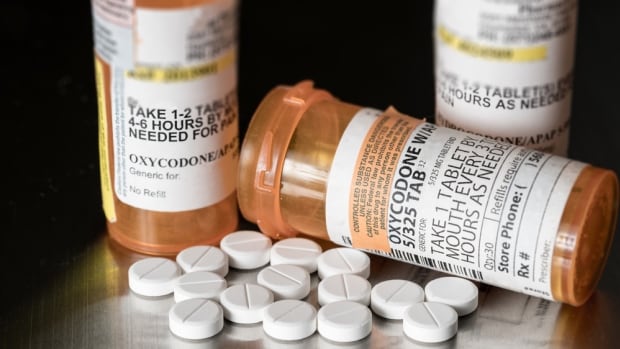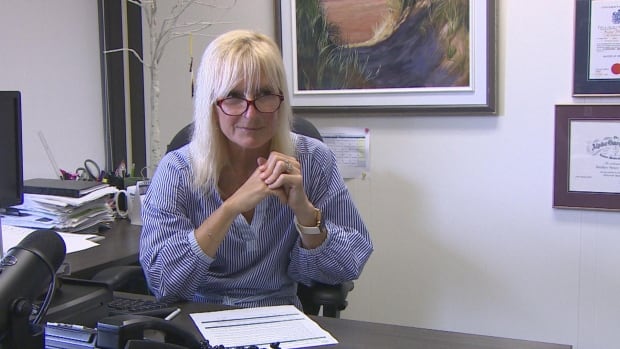Prescription drugs are going missing in Alberta — and most of the time, no one knows why.
Data from Health Canada based on reporting from pharmacies, drug wholesalers, hospitals and others over a six-year period from 2018 to 2023 shows that 88 per cent of all reports were classified as “loss unexplained.”
The Alberta data is part of a national data set obtained by CBC News through an access-to-information request.
Many of the largest losses of drugs were highly addictive opioid painkillers and benzodiazepines. The top two medications by unit quantity lost in Alberta were codeine and oxycodone.
Alberta ranks second for total losses
The findings for Alberta differ from the picture drawn by the national data set.
In the national data, CBC found unexplained losses now account for the majority of the potentially addictive and dangerous drugs reported missing to Health Canada. That’s a change from the previous six-year period, when most of the reported losses were due to theft.
Alberta ranked second among all provinces in all but one year of the data, for total number of tablets, capsules or similar units lost.
Nationally, the figures were driven by a relatively small number of high-volume losses. There were 102 reports involving losses of more than 10,000 units of a drug across the country, but only one occurred in Alberta.
54,500 oxy tablets stolen
The largest single loss report in the data occurred in Alberta — the internal theft of 54,500 tablets of the highly addictive opioid painkiller oxycodone, also known by the brand name Oxycontin.
Limited information about the theft, which was reported to Health Canada in 2019, is captured in the data. It’s not clear where in Alberta the incident took place, or whether the theft occurred over time or all at once. The incident has not previously been publicly reported.
Health Canada declined to provide additional information, but said law enforcement was notified.
Despite it being the largest reported theft of pills in Canada in six years, the provincial regulator — the Alberta College of Pharmacy (ACP) — said it didn’t have sufficient information to confirm whether it was aware of the incident.
LaGrange ‘deeply concerned’
Different classifications of medication have different reporting requirements.
Losses of some dangerous or highly addictive drugs classified under the federal Controlled Drugs and Substances Act are required to be reported to Health Canada within 72 hours.
However, whether those losses are also reported to the provincial regulatory body varies by jurisdiction. In Alberta, there is no such requirement.
In a statement, Health Canada said there were various factors that could account for changes in reporting figures including increased compliance with regulations due to an easier reporting system, and an increase in the number of pharmacies.
The ACP said the number of licensed pharmacies in Alberta in 2023 was 1,700 — an increase of 304 since 2018.
Health Canada declined to comment on what might explain Alberta’s high reporting numbers.
Alberta Health Minister Adriana LaGrange said in a statement that she was “deeply concerned” by the issues raised in the data.
“The safety and security of our drug distribution systems are paramount to ensuring the health and well-being of Albertans,” LaGrange said.
“[We] will be working closely with the ACP and Health Canada to make sure Albertans are protected.”
Reporting system
Jody Shkrobot, an assistant clinical professor with the faculty of pharmacy and pharmaceutical sciences at the University of Alberta, wasn’t surprised by the data.
“There’s a lot more awareness within the pharmacy community to ensure that the reporting is being done,” Shkrobot said in an interview.
“So obviously that is going to increase how often we’re going to see the reports, as well as the quantities associated with it.”
He noted that Health Canada has improved the ease of reporting with its online system, which may lead to more reports being filed.
But Shkrobot also pointed to that same system as a possible cause for the high proportion of unexplained losses.
“For most of the medications, reporting to Health Canada has to happen in 72 hours after the discovery of [the loss]. Sometimes it’s going to take more than 72 hours to go through the process of evaluating where the loss could have occurred.”
However, a Health Canada spokesperson said that the system allows pharmacists to update their intitial reports later on.
Losses of all types in Alberta declined sharply in 2020, then shot back up in 2021 and have been declining since. Thefts, in particular, decreased sharply after the ACP mandated time-delay safes in all pharmacies starting in 2022.
Shkrobot said it’s not clear what may have driven the fluctuation in numbers during the COVID-19 pandemic, or why Alberta has more losses than other provinces.
He would like to see Health Canada make this type of anonymized data publicly available to researchers for study in order to find answers.
“I would like to say that we have a perfect system, but the reality is clearly [the] data indicates we don’t have a perfect system,” he said. “We should be doing more.”






